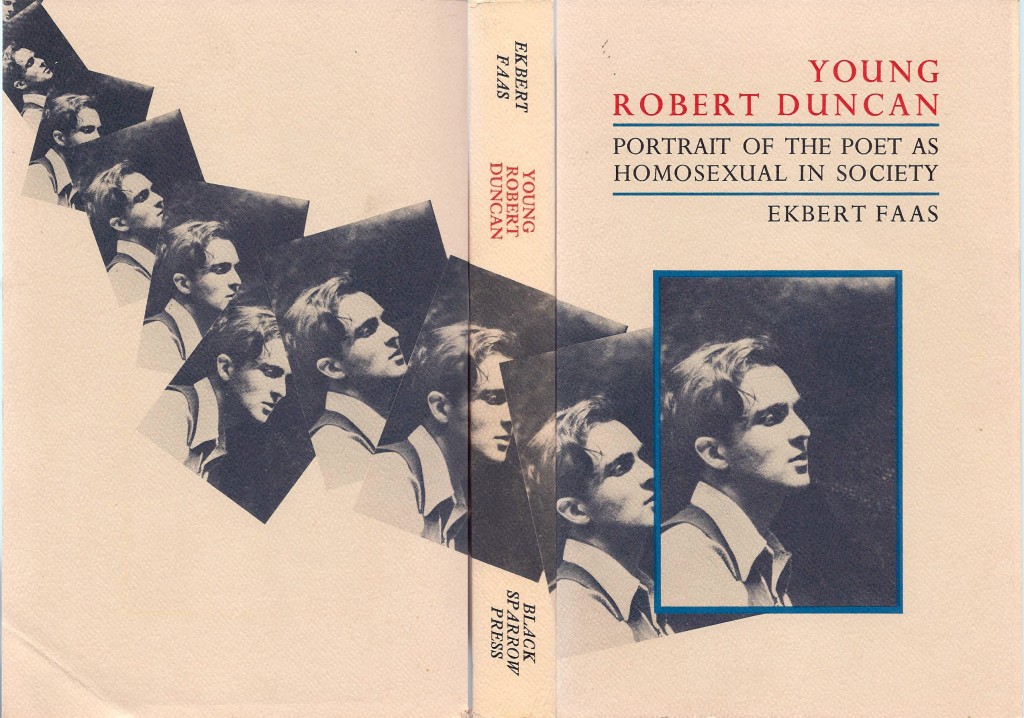“Ekbert Faas … has a hawk’s eye for significant projects. His early books identified the tragic dramatic monologue as a subgenre whose richness required exploration, whose full range would never be tapped until the cultural dynamics that shaped it had also been retrieved. These books were followed by criticism on contemporary American poetry, most notably a courageous study of Robert Duncan, one of our most talented poets. Young Robert Duncan … penetrated the world of the homosexual predicament, and the artist’s role in it, before it was fashionable to do so.” (G.S. Rousseau, Isis, 82, 3 Sep., 1991, 581-582)
“Duncan’s “first thirty-two years churn with adventure. Faas is to be commended for not trying to squeeze these years into one Procrustean theory. Quotes from Duncan’s letters, notebooks, poems, stories, reviews and unpublished novel constitute the biography’s best moments.” (Steve Abbott, Poetry Flash, 134, May 1984, 1)
“Bartlett: What do you think of the Ekbert Faas biography, Young Robert Duncan?
Everson: Terrific. I thought I knew Robert, but I found I hardly knew the first thing about him. His incredible early life carries the account. You find yourself marveling that he survived at all, then that he emerged with intelligence intact. Some of my friends were put off by the fact that English is not Faas’s first language, but in my reading that proved a plus. The Europeans bring a more historical and objective biographical perspective to the individual life, which effects a kind of cultural canonization that Robert’s heroic courage, intrepid eccentricity, and aesthetic integrity can sustain. The stiff, rather formal diction, detachedly unshockable, puts its painful burden in benign perspective. I predict the book will prove to be one of the cardinal elements in Duncan’s posthumous literary reputation.
Bartlett: How did Duncan regard it?
Everson: When I finished reading it I sat down and wrote Robert a letter intensely reaffirming all our friendship had meant to me. He told me later that the letter arrived at a decisive moment for him. The book itself had depressed him, and he tended to fault the author for that. But after my letter he took heart, and I know that in his next reading at U.C. Davis he brought the book along for sale with his poetry texts. I rank it among the top two or three literary biographies I have read.” (Lee Bartlett, “On Robert Duncan: A Talk with William Everson,” Modern American Poetry, March 1988)
